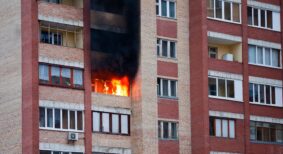Hamilton will soon be the first city in Ontario to introduce a renoviction bylaw forcing landlords to obtain a licence prior to engaging in building upgrades that require a unit to be vacated. Based on similar policy in New Westminster, BC, the Renovation Licence and Relocation Bylaw is another way to deter landlords from displacing tenants and hiking rents. While advocates refer to its recent passing as a “trailblazing victory”, landlords in the Hamilton area are far less celebratory. In fact, the Hamilton and District Apartment Association (HDAA) says the new legislation will lead to a more competitive and unaffordable rental market by deterring investment, lowering rental supply, and creating a worse environment for the most vulnerable tenants in the city.
“Housing providers will see Hamilton not as a place to invest, but rather a place to avoid and those who suffer will be our residents,” said Daniel Chin, President HDAA. “Although it may help address ‘bad faith’ renovictions, the licence fees will put more strain on housing providers, including the good and honest operators that make up the majority. Consequently, it will be more challenging for Hamilton landlords, and for many, it may no longer be economically viable to continue providing housing, especially in these unprecedented times.”
Meanwhile, arguing for stronger tenant protections, Monica Ciriello, Hamilton’s director of licensing and bylaw enforcement, sees the new legislation as a positive step for the city—particularly after Hamilton recorded a 983 per cent increase in the number of N-13s issued between 2017 and 2022.
“I am pleased that Committee supported this long-awaited bylaw, the first of its kind in Ontario,” she said, clarifying that it will not prohibit the issuance of an N-13 notice, but rather, ensure the City is informed and trigger the provision of information to tenants regarding their rights. This includes the first right of refusal to return to the unit at the same rate they were paying previously, and the right to temporary accommodations for the duration of the renovations paid for by the landlord.
As the HDAA argues, the $700-license and exorbitant costs of renovating and rehousing tenants will only further dissuade landlords from investing in their properties, particularly if they can’t increase rents afterwards.
“The RTA already doesn’t make it financially feasible to renovate properties and ask for N-13 evictions if the tenant intends to move back in,” Chin said. “The fact is, prices go up. In no other facet of our lives do prices stay the same. If we take this mindset, we should also ask why our municipal and property taxes are not the same as they were 10 years ago. It is not feasible, and costs unfortunately increase over time.”
Furthermore, the group asserts that provincial legislation already exists to dissuade unlawful renovictions. In June 2023, Ontario passed Bill 97, which amped up tenant protections and raised fines for ‘bad faith’ evictions. Landlords are now required to give tenants a 60-day grace period to return to their units at the same rate they were paying previously. If a landlord fails to comply, the tenant may file a complaint with the Landlord and Tenant Board (LTB) with fines for offences now up to $100,000 for individuals and $500,000 for corporations.
But the reality, according to tenant advocacy group ACORN, is that ‘bad faith’ renovictions continue to happen all-too often and landlords are going unpenalized.
“Renoviction shatters the lives of families, breaks long-held community bonds, drives up rents in the neighbourhood, increases homelessness and strain on social services, incentivizes landlords to allow their buildings to fall into disrepair and destroys existing stock of affordable housing,” ACORN Hamilton wrote in a recent update. “While tenants do have the legal right to return to their unit at their current rent once renovations are complete, ACORN has yet to see a landlord follow the law and honour these requests. The Renovation License and Relocation Bylaw aims to address this in many ways, most notably by requiring that landlords provide returning tenants with either suitable alternative accommodation for the duration of the renovations or compensation in the amount of the difference in rent.”
At the end of the day, the HDAA says that landlords really just want the same outcome as the City: to have a healthy rental market with happy tenants who are able to afford their units. “There does not need to be an adversarial relationship. If all parties worked together cohesively, a more positive impact could be made for the benefit of everyone while making sure our taxpayer funds went even farther.”





